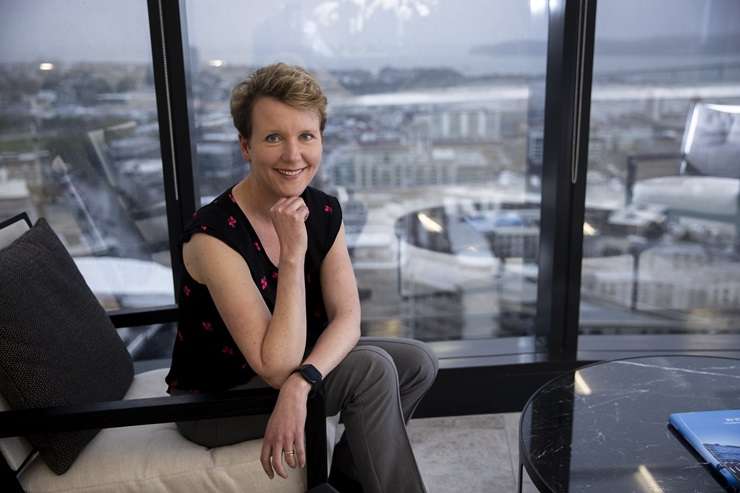After a long, flat year in much of the housing market some in the industry are excited about the year ahead. Mortgage rates are tipped to fall and house prices strengthen, but it’s anyone’s guess as to when and by how much.
Mortgage rates
The year ahead looks more positive for the housing market, with a few caveats, says Sharon Zollner, ANZ’s chief economist.
Mortgage rates are likely to dip, although exactly when is still up in the air, and house prices are likely to rise with ANZ economists so far sticking to a 4% lift expectation.
Start your property search
Late last year, the bank dropped some of its home loan rates, which Zollner says was down to a drop in the wholesale rate, although that is now back to where it was.
Read more:
- The most popular homes of 2024: What Kiwis will be buying as the market takes off
- The bitter truth about the 'bank of mum and dad’
- NZ's financial literacy crisis: Can you answer these 8 basic money questions?
Last year ended in a “goldilocks mood” due to a feeling the US Federal Reserve, “the head prefect of global central banks”, had done enough to combat inflation.
Since then the data has been more mixed, with Zollner saying the landing could be a bit harder than expected, either because the Federal Reserve did too much or because inflation can be sticky.
In New Zealand, recent GDP revisions suggest we have already had a harder landing, she says, but there is still a question around just how hard a landing is required to bring inflation down here.
Nothing is clearcut and while the housing market has lifted off the floor, it is still sluggish, but home loan rates have probably peaked and cuts are factored into most forecasts, which is good news for the market.
On the other hand, unemployment is forecast to rise “so it’s not unsullied good news”.
House prices
The housing market itself could be the fly in the ointment, she says. The Reserve Bank has expressed some concern strong population growth could put pressure on rents and to some extent house prices and that risk remains.
“It could play out a number of ways because of course a lot of people are also leaving, and a lot of immigrants are not going to be in a legal financial position to buy a house immediately.”
Then again, the new Government’s policy changes, such as changes to tax deductibility, the bright line test and potential softening of the CCCFA, make residential investment more attractive, which could give the market a boost even if interest rates don’t drop away quickly.
“But you can imagine scenarios where those things turn out to be quite potent and then the Reserve Bank might get quite unsettled and not cut rates as soon as everyone is expecting and that could counter it so there's a number of ways all these moving parts could balance out.”

ANZ chief economist Sharon Zollner says strong population growth could put pressure on prices. Photo / New Zealand Herald
Mark Smith, senior economist with ASB, says there could be a seven to 10 per cent pick up in house prices this year, for a number of reasons.
One is the strongest population growth for decades, and another is the likelihood mortgage and interest rates have peaked.
Also, house prices have already fallen sizeably since their late 2021 peaks which makes a rebound more likely.
He also points to the new Government’s policies being “a bit friendlier” to investors but says the key driver is interest rates, with a cut in the OCR possible in the second half of this year.
“Markets will probably front run that and we could well see mortgage rates start to move lower.”
Other factors are at play around house price growth, however. Unemployment is set to move above five per cent in the second half of the year, house prices to income are still elevated, and rental yield is low relative to the cost of capital.
“Those things should cap how much house prices move, otherwise we’d be seeing much higher growth.”
Outlook for first time buyers
Sanjeev Jangra, a Loan Market mortgage adviser, thinks interest rates will come down more towards the end of the year so advises home owners not to expect any fast action.
For first home buyers, the timing is still great to get into the market while house prices remain low, and there are “heaps” of good deals around.
“If you look at pretty much any real estate company there are a lot of auctions lined up for the end of January and February.
“Because the interest rates have gone so high a lot of people are in trouble at the moment, because they're struggling with the cash flow so those properties are coming on to the market, but at the same time first home buyers have a lot of great opportunities out there.”

Interest rates are tipped to fall this year but inflation may prove sticky, delaying the arrival of cheaper home loans. Photo / Fiona Goodall
His advice to buyers is not to fix for a long time, saying the most popular rate currently is 18 months.
While longer rates give certainty, if something unforeseen happens and the Reserve Bank starts cutting rates quickly there would be thousands of dollars to pay in break costs.
Also good news for first home buyers is banks being a little more lenient over deposit sizes since the Loan to Value ratio was changed, and Jangra says many first home buyers are taking advantage of five per cent deposits through Kāinga Ora.
Even in Auckland, people can get on the property ladder with a 5% deposit for an $800,000 property.
“I'm based in South Auckland and you can still buy a lot of properties around $700,000/$800,000 range, so all you need is $35,000 to $40,000 deposit, if you fit in the Kāinga Ora first home loan criteria.”
The criteria is not that hard, he says. People need a combined income of under $150,000 or $95,000 or less for a single person.
Getting a foot on the ladder
Jangra says first home buyers should remember a first home is not a dream home and just get in.
Elyce Peters, head mortgage adviser with The Mortgage Girls in Christchurch agrees, saying she is a big believer in “time in the market, not timing of the market”.
Sometimes clients miss the boat by waiting for prices to come down but by the time they finally buy they would have made more in equity if they had just bought.
Peters is excited about the year ahead with mortgage rate cuts likely, saying Canterbury’s market has been stable and clients can still buy properties for under $500,000, which is almost unheard of in many parts of the country.
The biggest question she is being asked is “what are interest rates going to do?” but she advises people to plan around their own financial situations rather than rate predictions.
And, she says talk to a broker because while banks advertise rates on a website, there is competition between lenders and rates can be negotiated: “You never get unless you ask."
Use the search field to find out the best mortgage deals available today.














































































